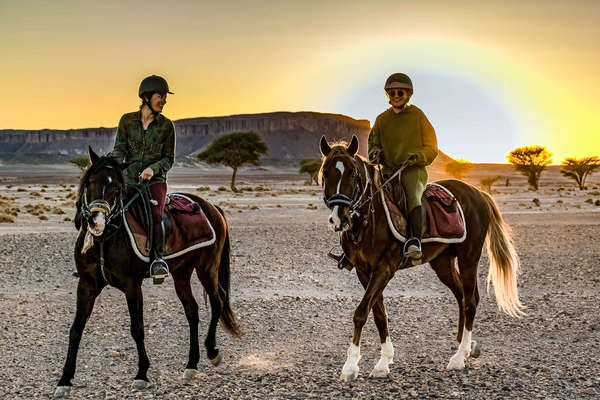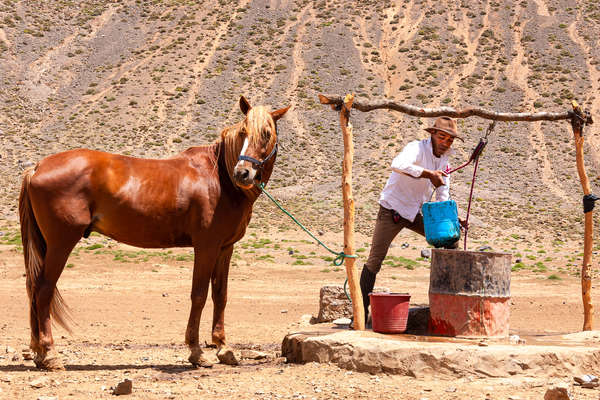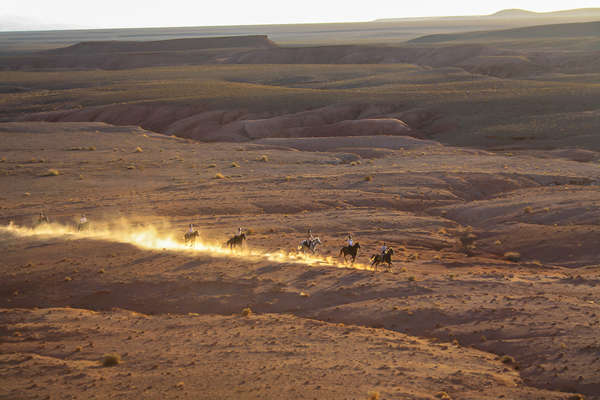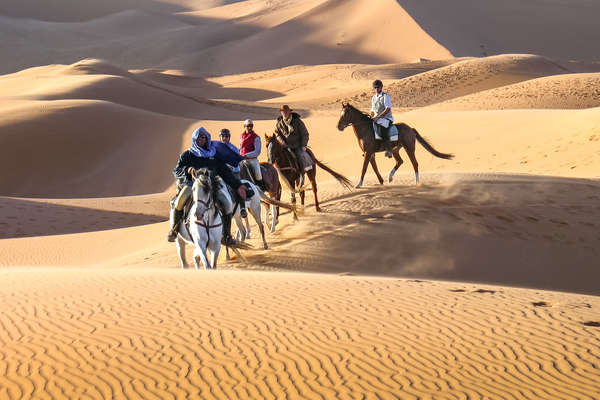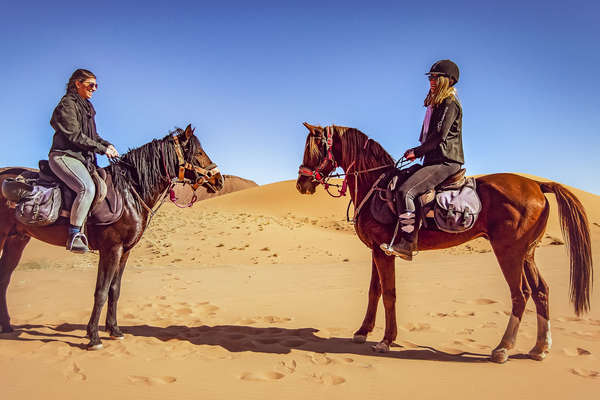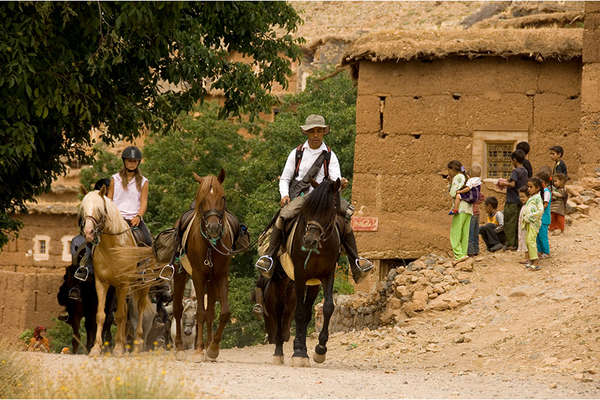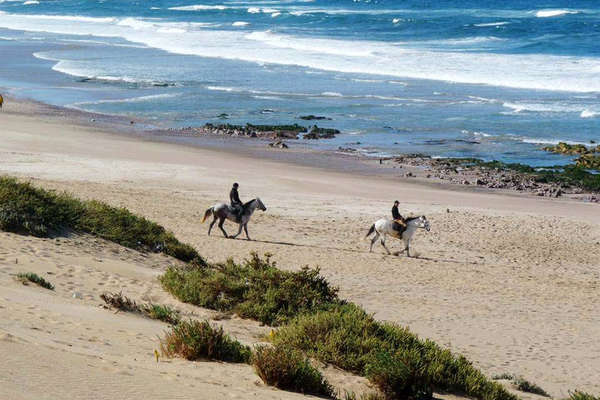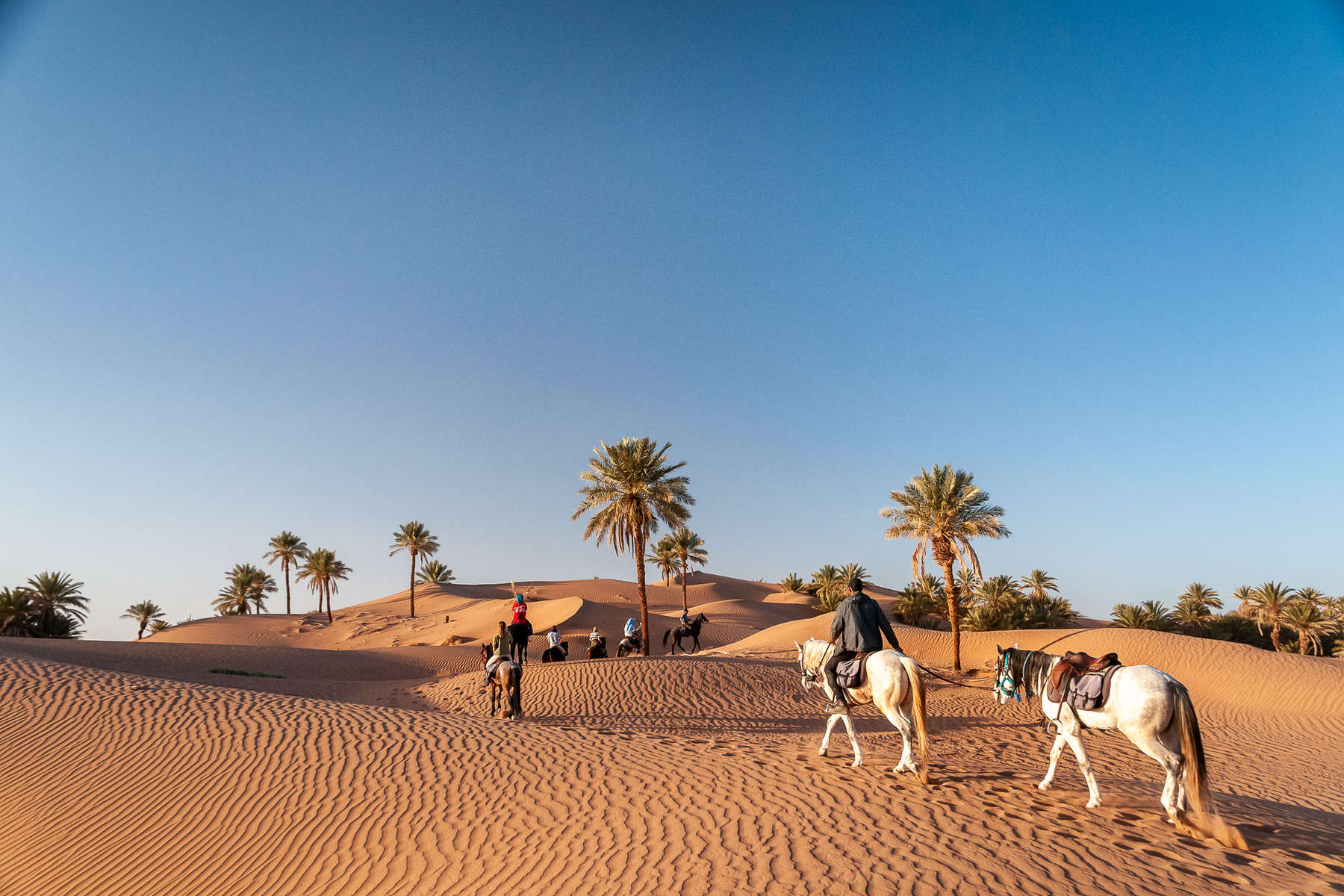
From the horse’s mouth
All trips
No matches
Visa & Health
Formalities
We will endeavour to keep this section up to date, but please visit https://travel.state.gov/content/passports/en/country/morocco.htm l (US citizens) or https://www.gov.uk/foreign-travel-advice/morocco/entry-requirements (UK citizens) for further information.
To enter Morocco, a passport valid for the duration of your stay is required by all British, American, Canadian and EU nationals. However, the Moroccan Consulate General in London advise that your passport should be valid for at least 3 months on your date of entry to Morocco. If your passport does not meet this requirement you may face difficulties and you should check with the Moroccan authorities and your travel provider before travelling.
Passport note:
You should ensure that your passport is stamped when you enter the country. Some tourists have experienced difficulties leaving the country because their passport bears no entry stamp. Your passport should be valid for the proposed duration of your stay in Morocco. No additional period of validity beyond this is required.
Visas
Visas are not required by British, American, Canadian and EU nationals for stays in Morocco of up to three months.
Addresses of consulates
- Paris | Ambassade du Maroc
5, rue Le Tasse
75116 Paris
Tél. : 01.45.20.69.35
Fax :
info@amb-maroc.fr - Ambassade de France au Maroc
1 rue Aguelmane Sidi Ali Agdal BP 602
Rabat - Chellah
Tél. : +212 5 37 27 66 00
Fax : +212 5 37 27 67 11
webmestre@ambafrance-ma.org - Moroccan Consulate
Diamond House
97-99 Praed Street, Paddington
W2 1NT London
Tél. : +44 020 7724 0624
Fax :
Health
Malaria is very rare and present only in a few remote areas. Don't underestimate this tropical disease and take precautions. Buy repellent (preferably with 50% DEET), and sleep under a net.
Insurance
Voltage
Budget and money
• Banknotes 10, 20, 50, 100, 200 dirham
• Coins 1, 5, 10, 20 santimat; ½, 1, 2, 5, and 10 dirham
Telephone and jetlag
Roaming agreements exist with international mobile phone companies. Coverage is good in towns and cities, and across the west of Morocco, but a little more erratic east and further south.
Time zone: GMT
Country information
Country ID
Area: 710,850 sq km (274,461 sq miles, including Western Sahara).
Population: 32.7 million (2013).
Population density: 45.9 per sq km
Language: The official language is Arabic. Berber languages are not officially recognised even though it is the language of the country's first inhabitants, who form a majority. French is widely spoken throughout the country, except in the northern regions where Spanish is more predominant. English is also understood, particularly in the north and major tourist destinations like Marrakech.
Religion: Morocco is predominantly Muslim with Jewish, Christian and Hindu minorities.
Political regime: Constitutional monarchy
Head of State: Abdel-Ilah Benkiran
Head of Government: Prime Minister Abdelilah Benkirane since 2011
Socio-economical data
A large number of Moroccans are still employed in agriculture, growing cereals, vegetables and citrus fruits, and fishing remains another vital field. Industry accounts for around a quarter of GDP, of which the textile and garment industry employs a rapidly growing number of Moroccan women as well as generating export income. Mining also generates revenue for Morocco, which is the world's largest exporter of phosphates. Although Morocco has small oil and gas reserves, it has to import the bulk of its needs.
History
In 670 AD, the first Islamic conquest of North African took place, and the Arabs imported their customs, culture, and Islam, to which most of the Berbers converted, forming states and kingdoms. In 788 Idris ibn Abdallah founded the Idrisid Dynasty, covering most of the territory of modern day Morocco. This dynasty became largely independent of the caliphs that ruled them from far away places, and made Fez the capital. The dynasty lasted for almost 200 years. After the fall of the Idrisid Dynasty the country was ruled by several other dynasties, including the Caliphate of Cordoba, the Almoravid dynasty and Almohad dynasty. But those lost their influence when the Spanish reconquista meant that they lost control over Al Andalus, which also meant a huge inflow of muslims from Iberia. In the 17th and 18th centuries a smaller but wealthier and more united Morroco emerged.
In the 19th century Morroco became a prime target to add as a colony for many European countries, including France, Germany and Spain. The Treaty of Fez (signed on March 30, 1912) made Morocco a protectorate of France, with Spain taking over control over the Saharan zones. By the time of World War II, nationalist parties were pushing for independence for Morocco, which led to complete independence from France in 1956.
Geography
Running through the middle of the country is the Atlas mountain range. The Middle Atlas range sweeps up from the south, rising to over 3,000m (9,850ft), covered with woodlands of pine, oak and cedar, open pastureland and small lakes. The Rif Mountains run along the north coast. Often snow-covered in winter, Morocco's mountains are home to the country's significant indigenous Berber population.
The long stretch of Atlantic coast down Morocco's western side features cool breezes and long sandy beaches. It is separated from the mountainous region by wide swathes of fertile plains. To the north, is the Mediterranean coast, just a stone's throw from the European continent – Gibraltar is an hour’s ferry ride away.
In the south of the country, the Sahara is the largest desert in the world. Far from being featureless, it is dotted with fascinating traditional villages and cool oases.
People, culture and traditions
Although casual gear is widely acceptable, wearing any clothing that reveals arms or legs is disrespectful. Swimsuits, shorts, sleeveless tops and clingy clothing should be confined to the beach or poolside for both men and women. Women travelling alone can expect help and friendship, but will avoid undue attention if they cover up, ideally in local garb. Sexual relations outside marriage (including homosexual conduct) are theoretically punishable by law, but this is rarely enforced. Smoking is widespread, though sometimes limited to smoking sections in restaurants. Drinking alcohol in view of a mosque is highly disrespectful and alcohol licences are expensive, but alcohol is often served discreetly indoors or on terraces
Choosing the right riding holiday
Choosing the right riding holiday
Morocco is a fascinating country and a year-round horse riding holiday destination - cool mountain trails in the summer months and pacey desert trails in the winter months. You can choose from camping trails, comfortable accommodation or even a centre-based stay. All riding trails are for intermediate or advanced riders and all include opportunities to canter.
DESERT TRAILS: In the northern fringes of the Sahara desert you can ride across sand dunes and open desert flats, skirt oases and pass Bedouin villages. The trails run in the cooler winter months as the desert is too hot in the summer.
Trails staying in camps: Desert Cavalcade
Trails staying in riads: Horses, Dunes and Nomads
MOUNTAIN TRAILS: In the Atlas mountains these trails take you along narrow paths offering panoramic views. Visit forgotten valleys, high mountain passes and Berber villages clinging to the cliffsides. All trails are camping.
Trails in Spring/Autumn: Saffron Trail and Valley of the Roses
Trails in the Summer: High Atlas Mountains
COASTAL TRAILS: Follow cliffs and beaches along the Atlantic coast, where sea breezes keep the summer temperatures pleasant and discourage sunbathers, leaving the beaches perfect for riding: Riders of Essaouira
CENTRE BASED RIDES: Close to Marrakech and ideal for short-breaks and mixed groups as there are plenty of non-riding activities on offer as well. Comfortable accommodation and family friendly: Moroccan Escapade

